Steven Spielberg | 2hr 26min

The downfall of civilisation in Steven Spielberg’s dark vision of the future comes not through machines seeking to displace biological humans, nor does it arrive with an apathetic dismissal of emotions. Not once do we doubt that the Mecha humanoid robot adopted by the Swinton family holds anything less than a sweet, innocent love of his new parents, despite his odd and occasionally dangerous behaviour. In their home of rippled windows and reflective surfaces, his image is distorted into unearthly appearances, driving his surrogate mother, Monica, deeper into her fear and mistrust. As his creator Professor Hobby explains, it is not a question of whether these artificial children can love.
“Isn’t the real conundrum, can you get a human to love them back?”
The philosophical mysteries wrapped up in this single line are vast, drawing this heartrending fable of parents and children back through millennia of human storytelling. “In the beginning, didn’t God create Adam to love him?” the professor asks his colleagues, laying out a biblical framework for Spielberg’s narrative which sees extraordinary creations offer their creator an infinitely selfless love that can never entirely be reciprocated. Like a devoted believer craving a connection to their deity, the lifelike Mecha child David has an unquenchable longing for motherly affection, driving him to the edge of death just so he might finally know what it means to truly be loved, if only for one day.
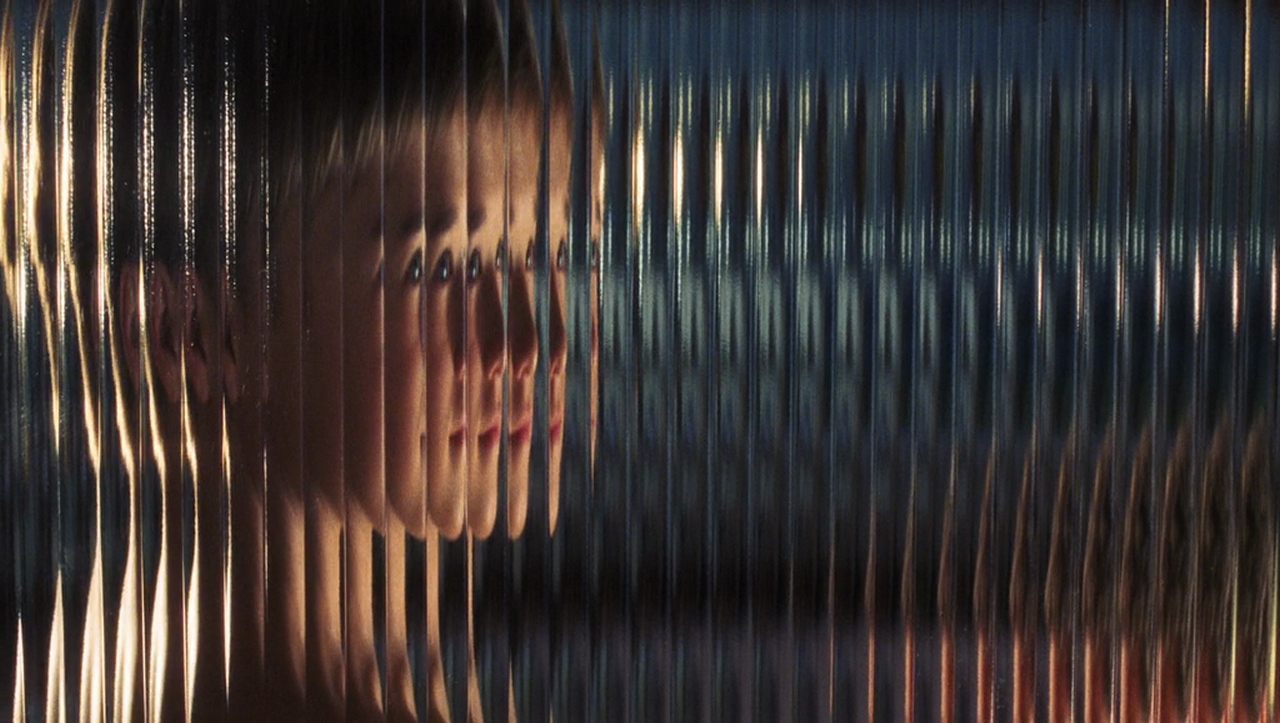
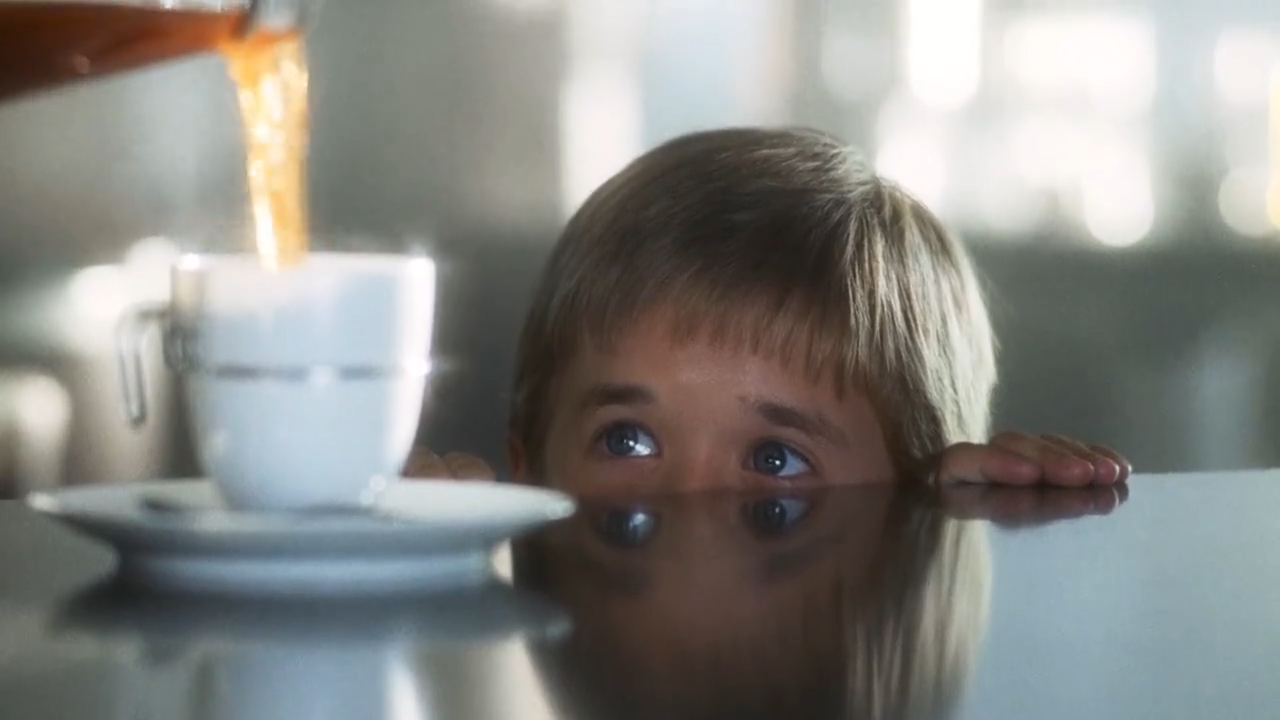
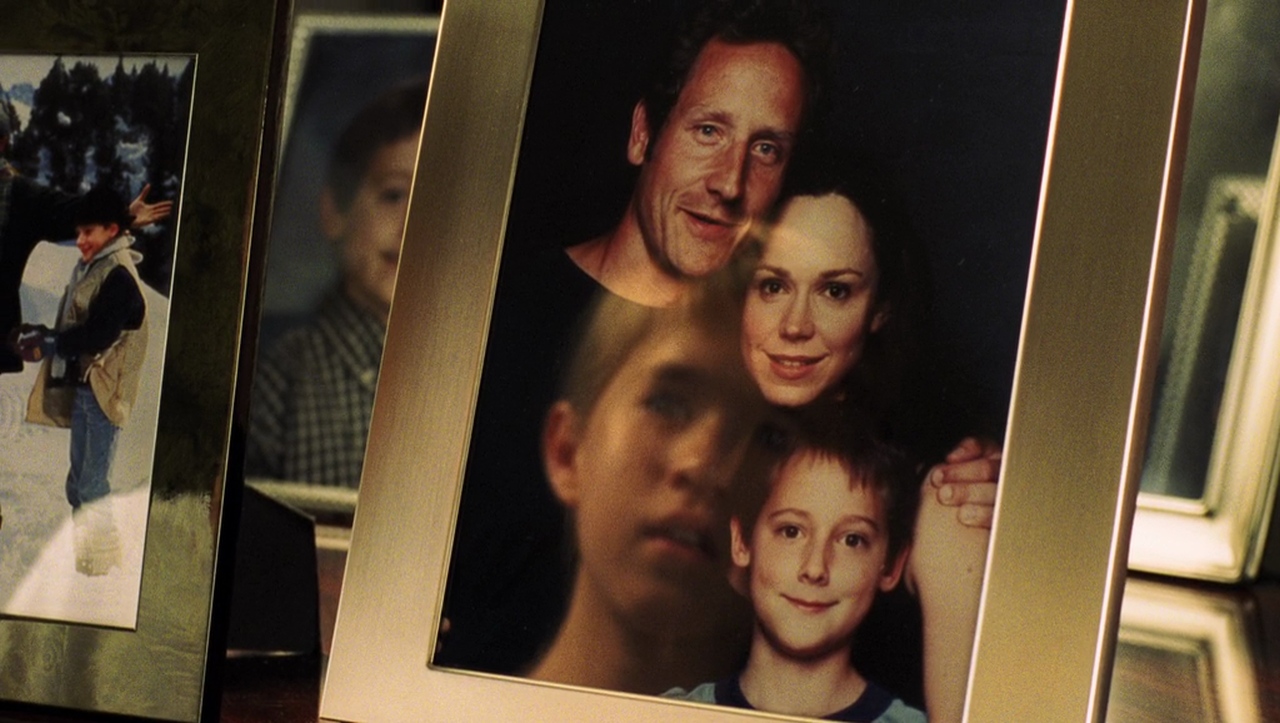
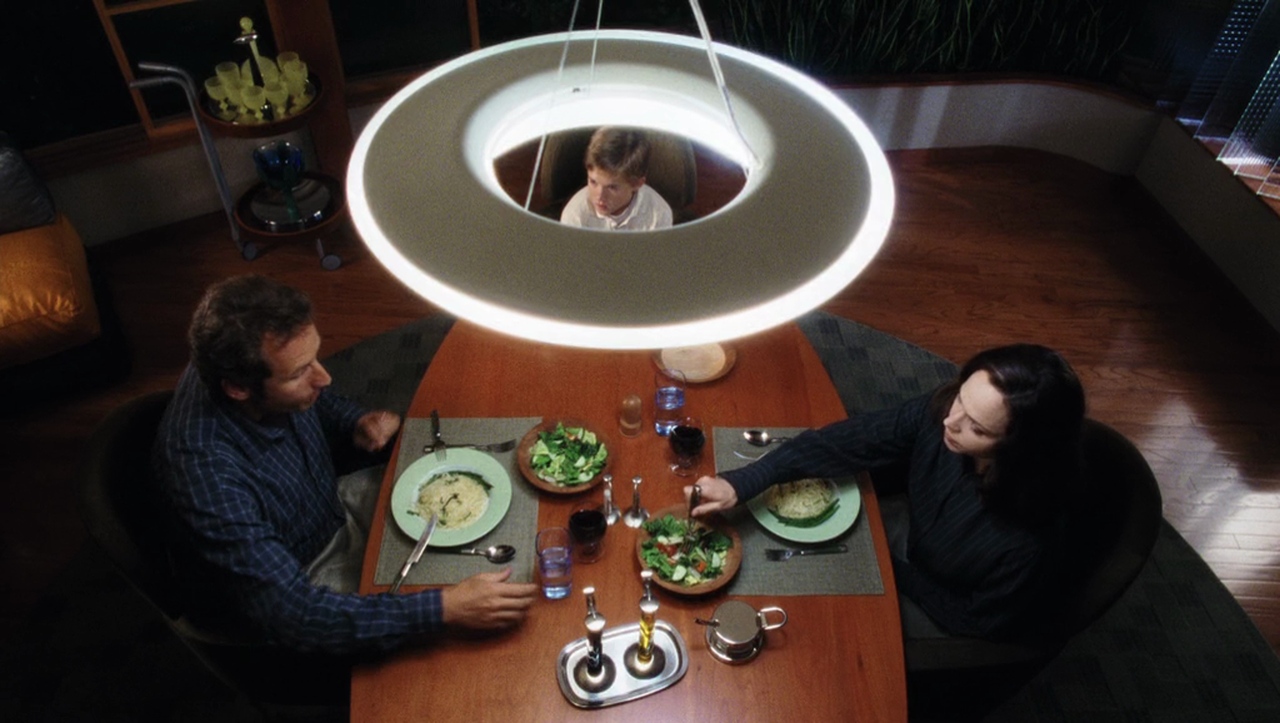
Most of all though, it is the fairy tale of Pinocchio which offers A.I. Artificial Intelligence its overarching narrative structure, as well as an intertextual guide that inspires David’s own journey. If he is the puppet wishing to be a “real boy,” then his companions, the robotic Teddy and fellow Mecha robot Gigolo Joe, fill in the Jiminy Cricket role as his conscience, leaving Professor Hobby as his Geppetto, and the Blue Fairy as a distant, ethereal promise of divine salvation. The Pleasure Island of Spielberg’s version is not a carnival that indulges the whims of naughty boys, but a Flesh Fair where humans express a violent, existential anger at their insignificance in a modern world by torturing and mutilating A.I. robots.
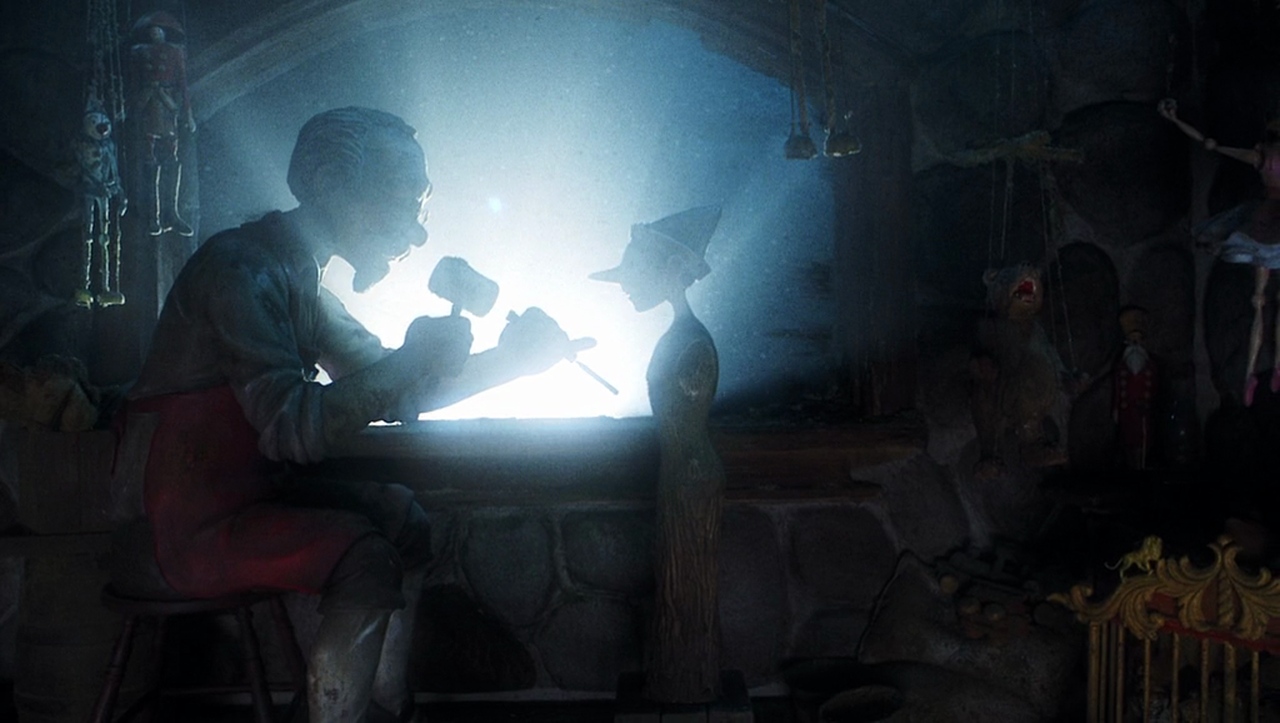
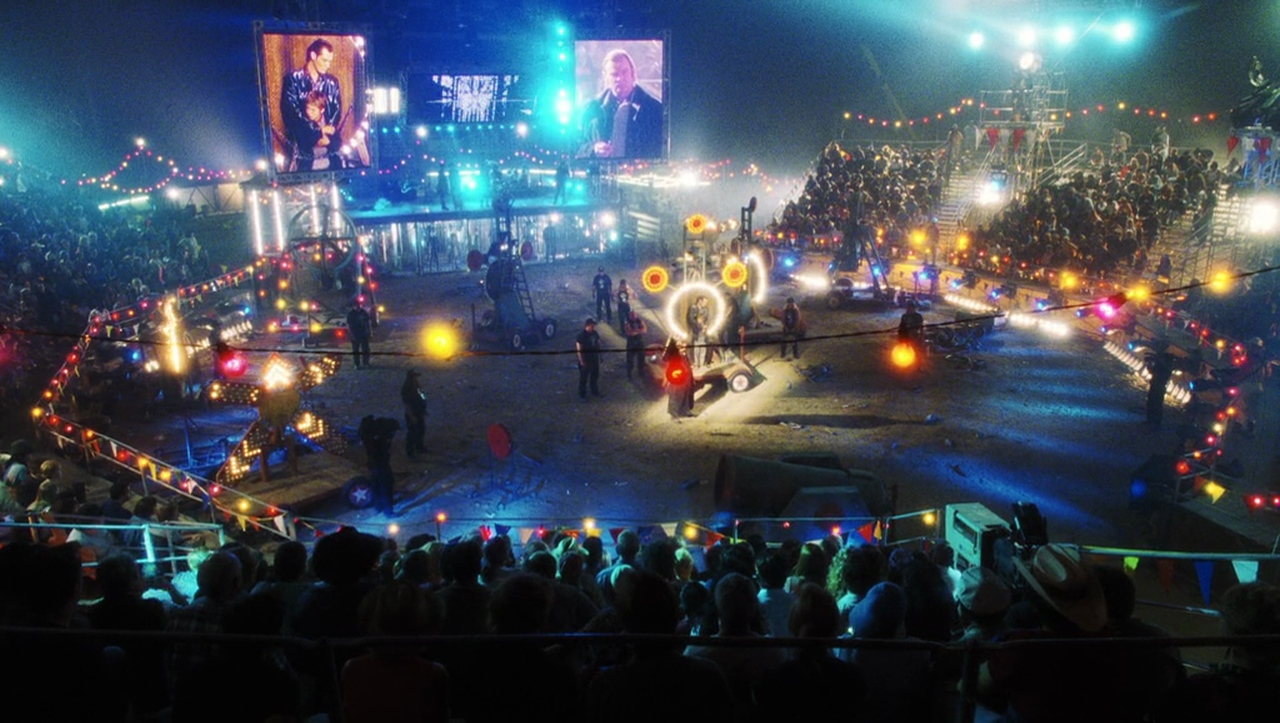
The conservative undertones to the Flesh Fair’s slogan “A Celebration of Life” are readily apparent in Spielberg’s critique of society’s regressive nostalgia, making it not in the least bit surprising that A.I. Artificial Intelligence was originally going to be directed by Stanley Kubrick. There may be no filmmaker with a greater distaste for humanity than the one whose emotional coldness lifted 2001: A Space Odyssey to transcendent heights, and who cast misanthropic aspersions on arbitrary historical traditions in Barry Lyndon. Humanity is overrated, he believed, and so it easy to see how cleanly this film’s admiration of the inhuman would have fit into his broader filmography.
Believing that there was no child actor good enough for its lead role though, and realising that the technology of the day was not yet advanced enough to create a computer-generated version of him, Kubrick passed the story along to Spielberg. Without seeing Kubrick’s finalised vision, it is impossible to assess whether it would have been greater than Spielberg’s or not, but it is tough to conceive it being so emotionally affecting.
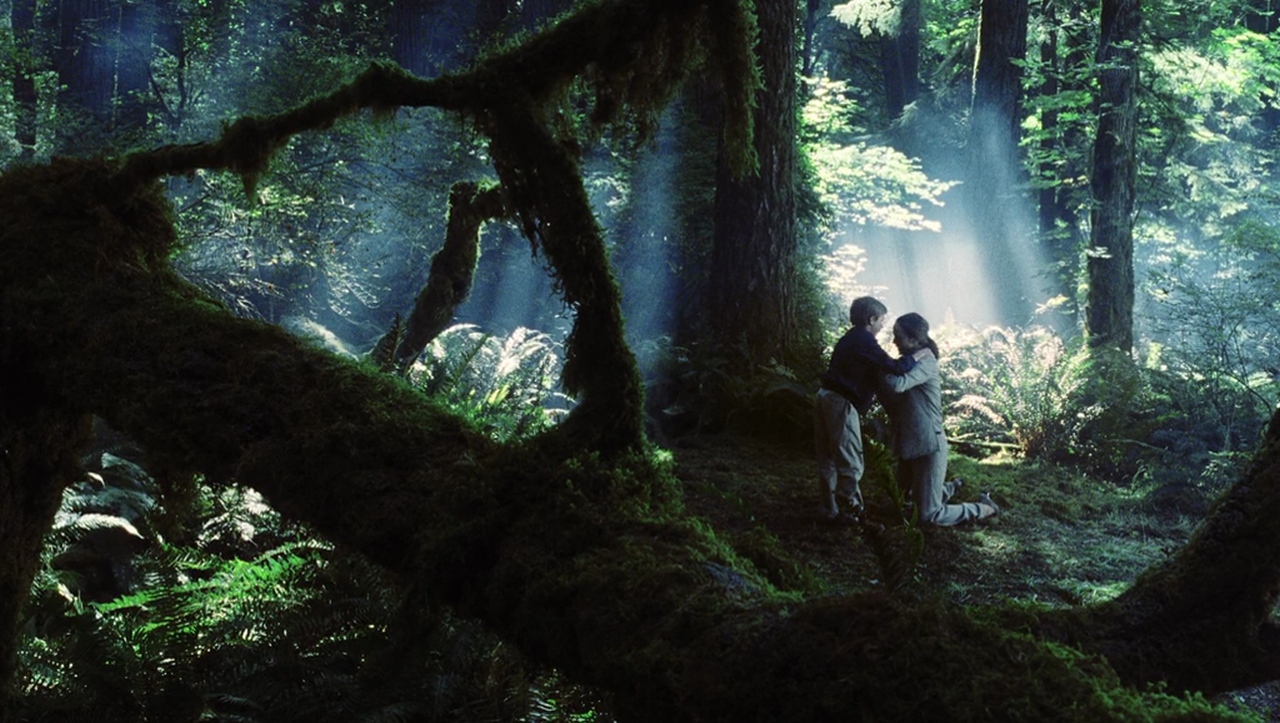
Of course, a large part of this has to do with Spielberg casting humans as his lead actors, rather than rendering them in CGI as Kubrick originally intended. Haley Joel Osment indeed delivers that child performance that Kubrick believed was impossible, exploring the existential depths of this artificial child coming to terms with a universe that created him and then left him to fend for himself. There is a particular poignancy in his performance as we edge towards the final act, where David discovers an entire factory of other Mecha products identical to his own design and recognises his true insignificance to his own creator. As he peers through the empty eye holes of a mask bearing resemblance to his own face, Spielberg distils his identity crisis down to a single, eerie image, revealing the heart and mind of a “real boy” trapped in the body of a machine.
Meanwhile, Jude Law’s turn as A.I. male prostitute Gigolo Joe offers David a warm camaraderie that is scarce to be found anywhere else, moving in energetic, dancelike movements inspired by Fred Astaire and Gene Kelly. Through both his and Osment’s performances, we find an expressive, vivid humanity in the film that has been lost in the biological humanoids around them.
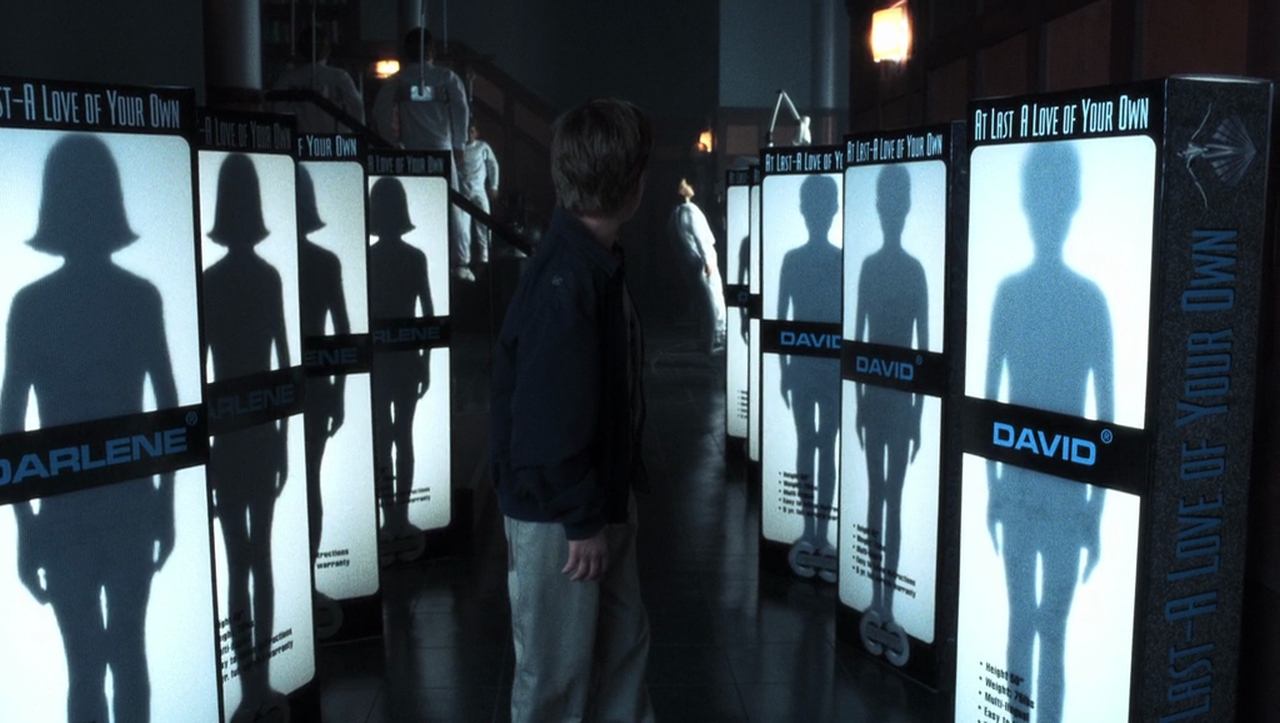
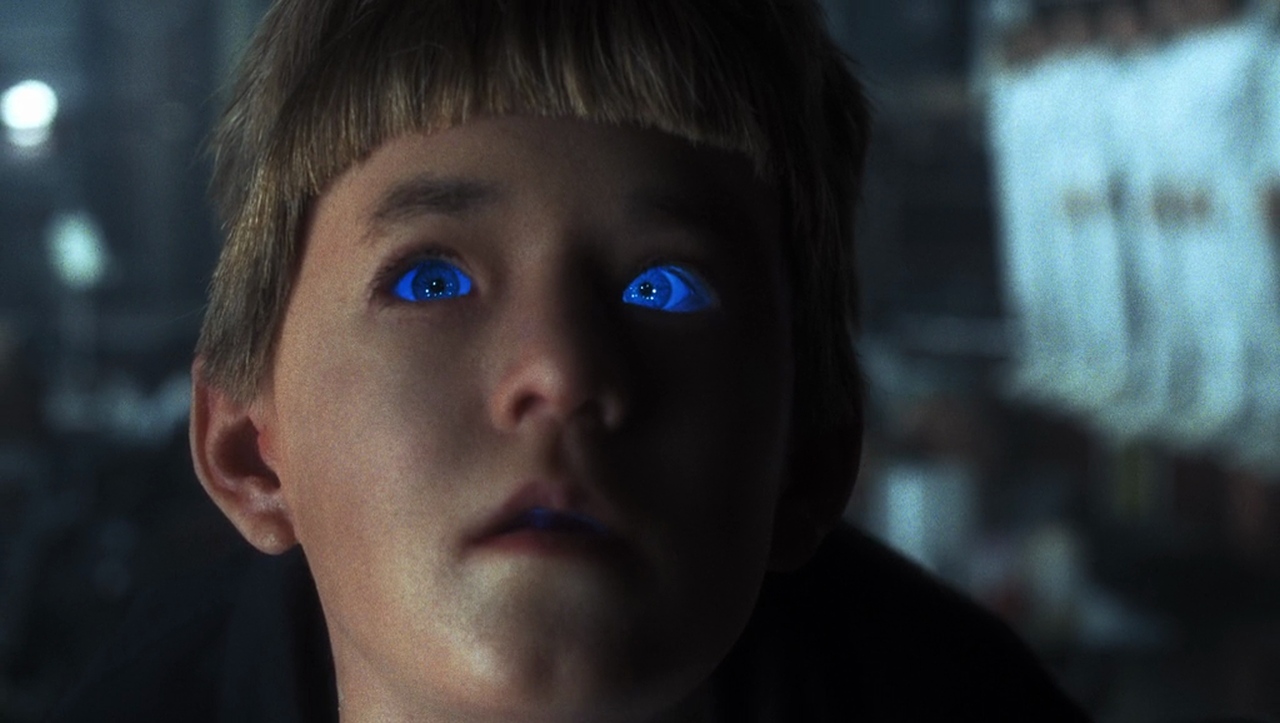
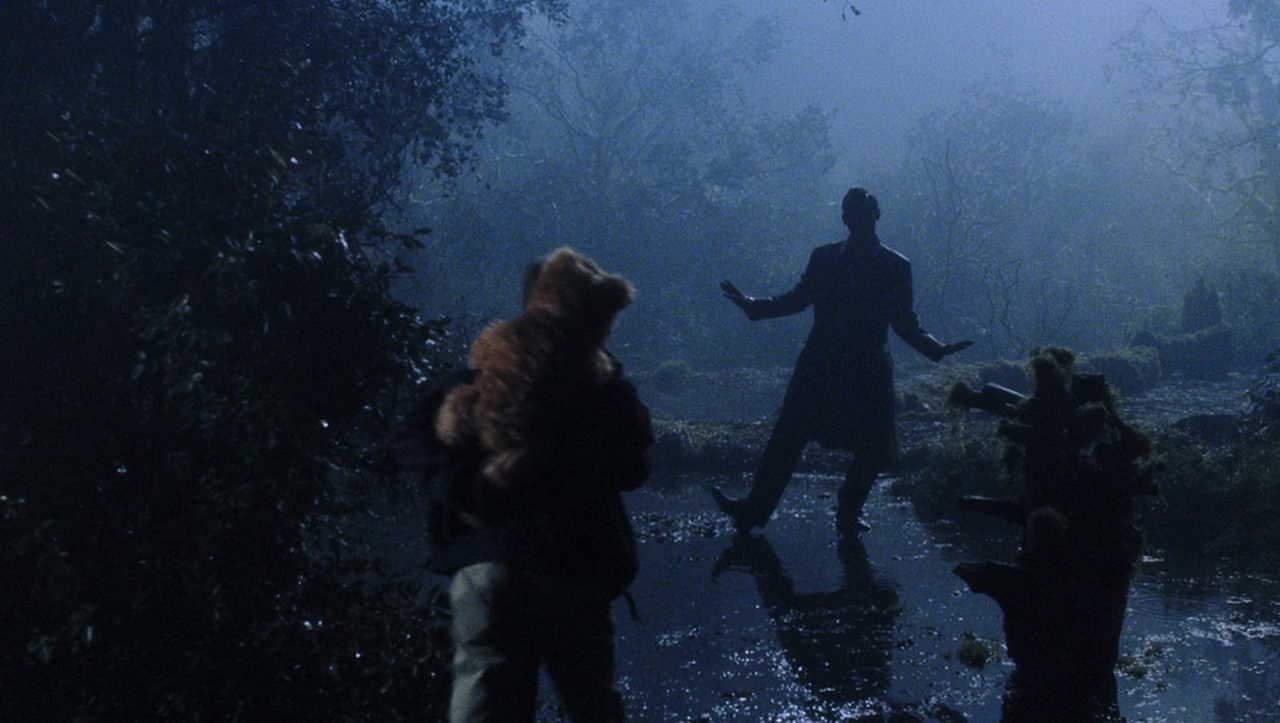
Perhaps this is why David’s wish to be human is such a dauntingly impossible request when he finally meets his maker, given that source of his troubles lies not in his identity, but in everyone else. Human love naturally struggles to survive in a dystopian world of widespread moral corruption, and so the group of artificial outsiders who consistently outperform their natural counterparts become the perfect scapegoats. The settings that David must contend with are daunting in their tactile designs, setting an artistic challenge for Spielberg that plays to his strengths as a world builder and craftsman of powerful imagery. The cold blue lighting and isolating compositions of the first act set in the Swinton family home are carefully curated, but A.I. Artificial Intelligence truly lifts off when David is abruptly thrust into unfamiliar environments, where giant, glowing moons float through forests and sunken carnival attractions dwell in New York’s flooded depths.
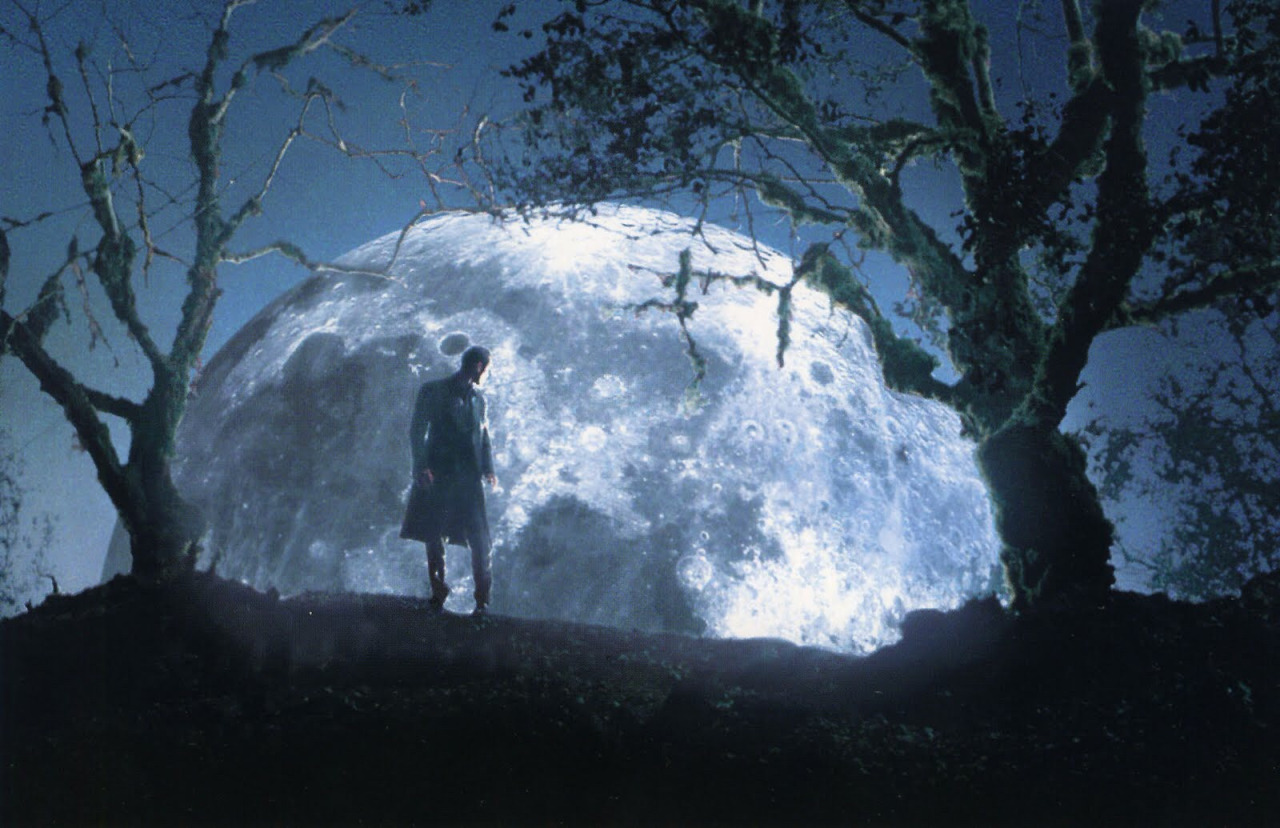
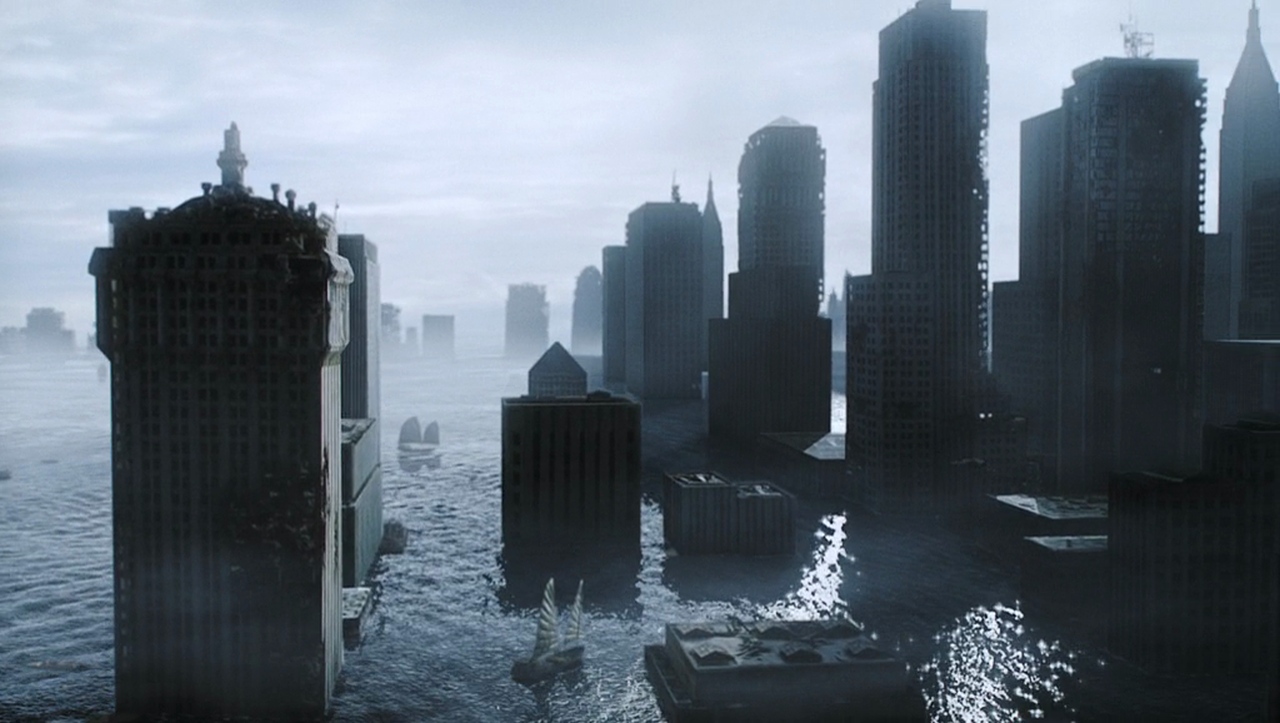
Most of all though, it is in the populated urban centres of Rouge City where Spielberg is at the top of his visual game, with cinematographer Janusz Kamiński drawing heavy inspiration from Blade Runner both thematically and aesthetically. The light pollution emitted by the coloured neon signs and buildings that line the dingy urban streets is blinding, projecting flashy holograms into the night sky like a ceiling to keep out the darkness. Spielberg weaves a glossy palette of red, blue, purple, and black through the architecture and costumes of these environments, while the Flesh Fair establishes a grittier aesthetic in a stadium illuminated by bright roving spotlights and flashing bulbs. Every detail captured by Spielberg’s camera is dynamic and bursting with life, telling the story of a culture entangled in a moral predicament of grand proportions, unable to reconcile its humanity with its artificial creations.
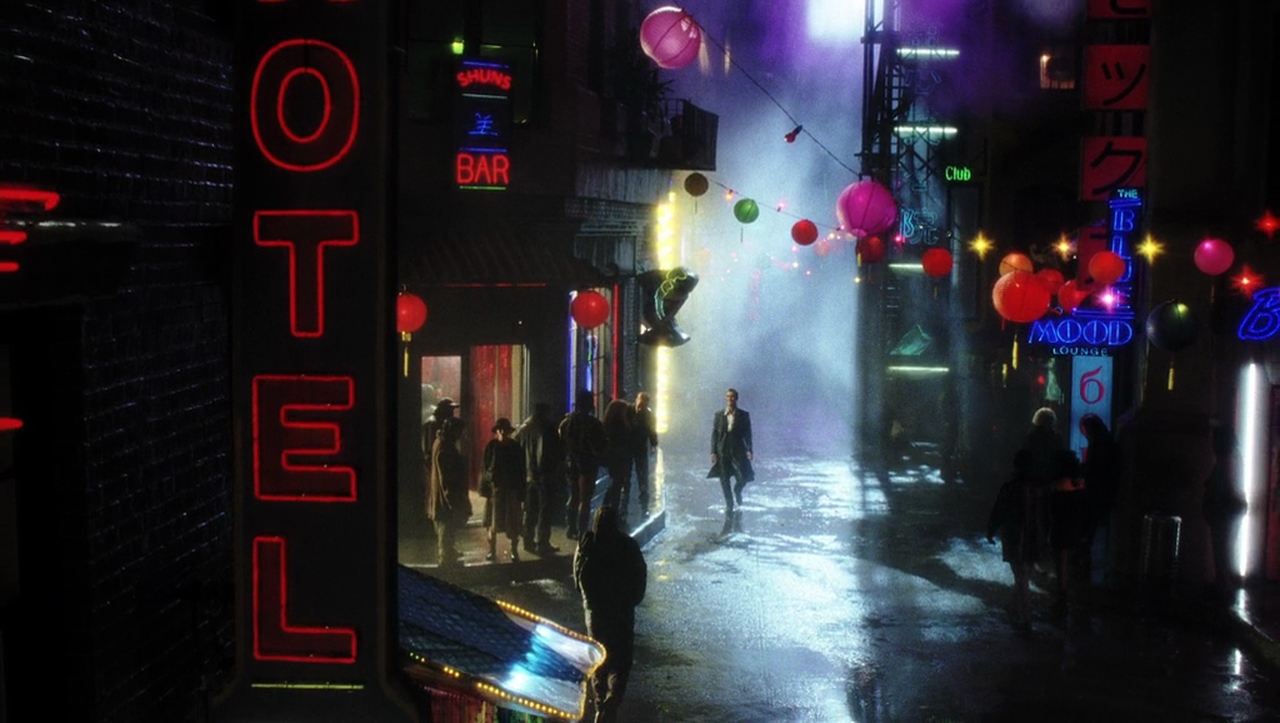
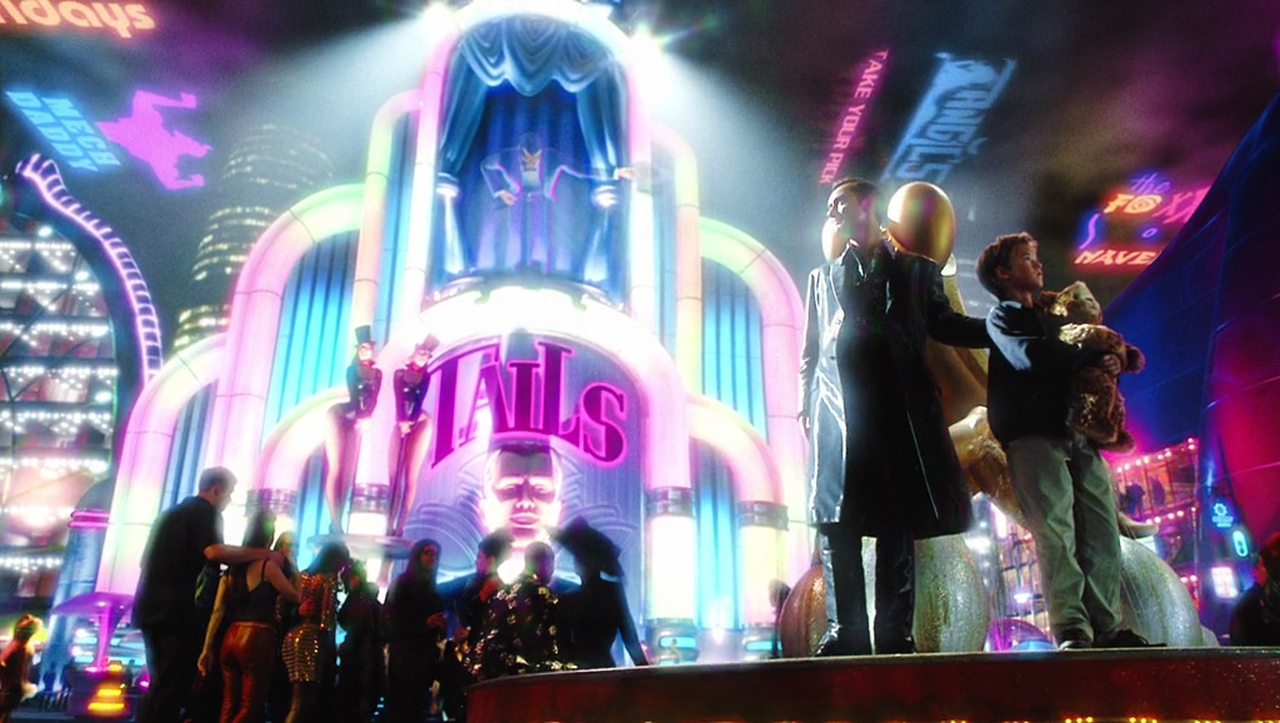
Spielberg does not shy away from the air of fated devastation that hangs over this civilisation either, eventually embracing visions of a future where humans have died out. A.I. Artificial Intelligence could have very well ended on a demoralising downbeat as David finds himself locked in an eternity of constant, unfulfilled wishes, and yet Spielberg’s gracious leap forward two thousand years into the future alleviates some of that misery for a more bittersweet conclusion. The evolution of Mecha has brought about a more advanced race of beings that are kinder and more peaceful than humans ever were. They claim that they are unable to grant his wish, and yet the validation he seeks is nevertheless fulfilled through their generous gift – one last day with his mother, free from any worldly distractions.
Those two thousand years may have vanished in the blank of an eye for David, and yet these hours spent experiencing true, maternal love become “the everlasting moment he had been waiting for,” seeming to stretch on forever. Before they both drift off into a sleep neither will wake from, Spielberg tugs on the heartstrings one last time, recognising the compassionate acceptance that this child has found in his mother’s arms. It is one thing to have the emotional capacity to love another person, he concludes, and yet only by feeling the warmth of that equal, unconditional love in return can any living being experience the full joy of being human.
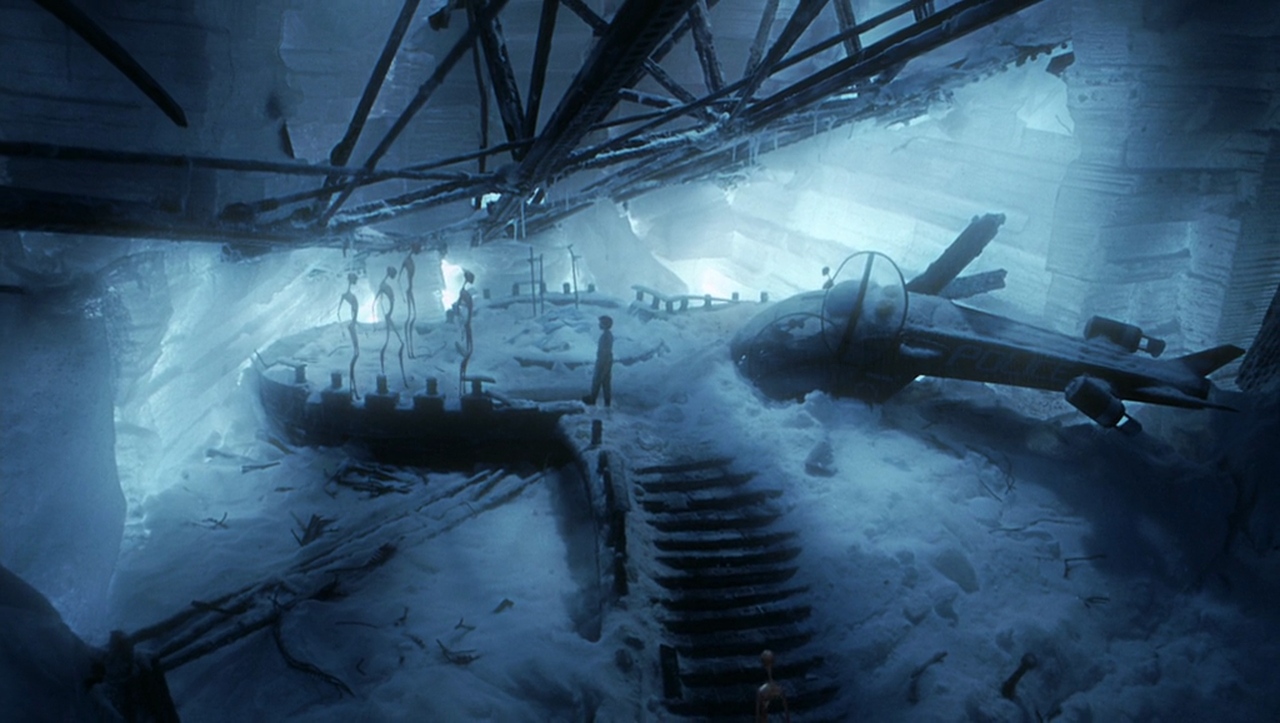
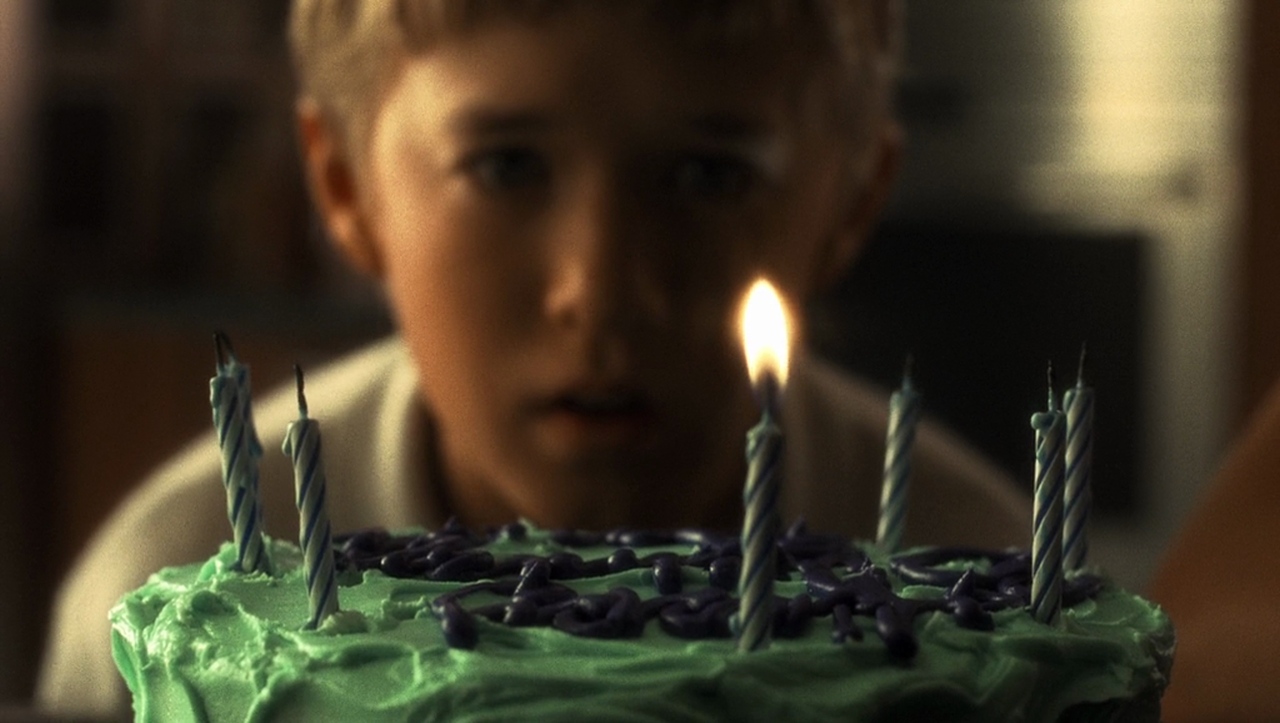
A.I. Artificial Intelligence is currently streaming on Stan and Binge, and is available to rent or buy on Apple TV and Amazon Video.

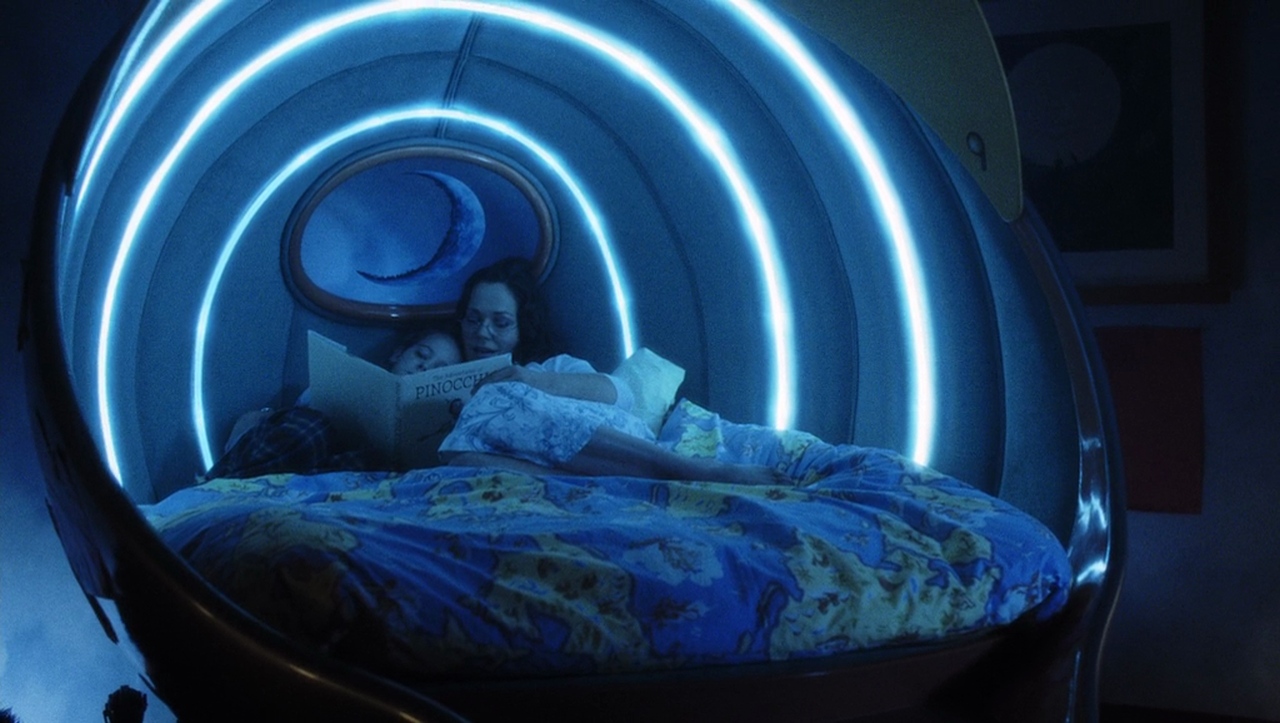
“Spielberg brings a much warmer touch to this tale than Kubrick would have, centring the sweet love a child has for his mother with gentle grace. This doesn’t make it better or worse than what we might have gotten otherwise – but it is honest to Spielberg’s artistic inclinations.”
This is actually a myth and I believe most of the darker stuff like the beginning and closing where brought by Speilberg whereas a lot of the lighter stuff was actually from Kubrick (why he sought out Spielberg).
Interesting, did Spielberg speak about this somewhere in an interview? I found it hard getting many details on this.
I got my information from Rob Ager in this video: https://www.youtube.com/watch?v=hD66njCw_bE